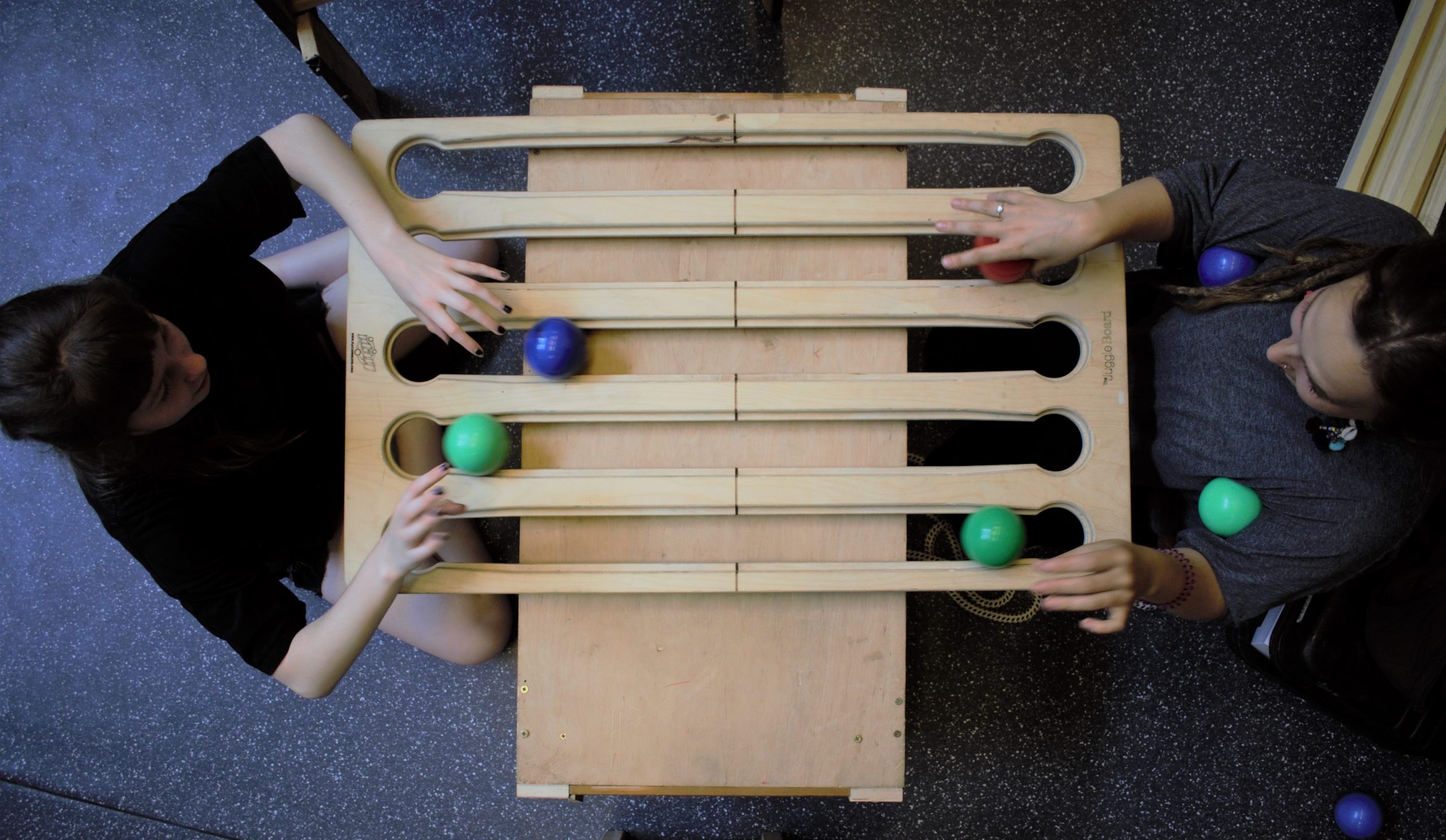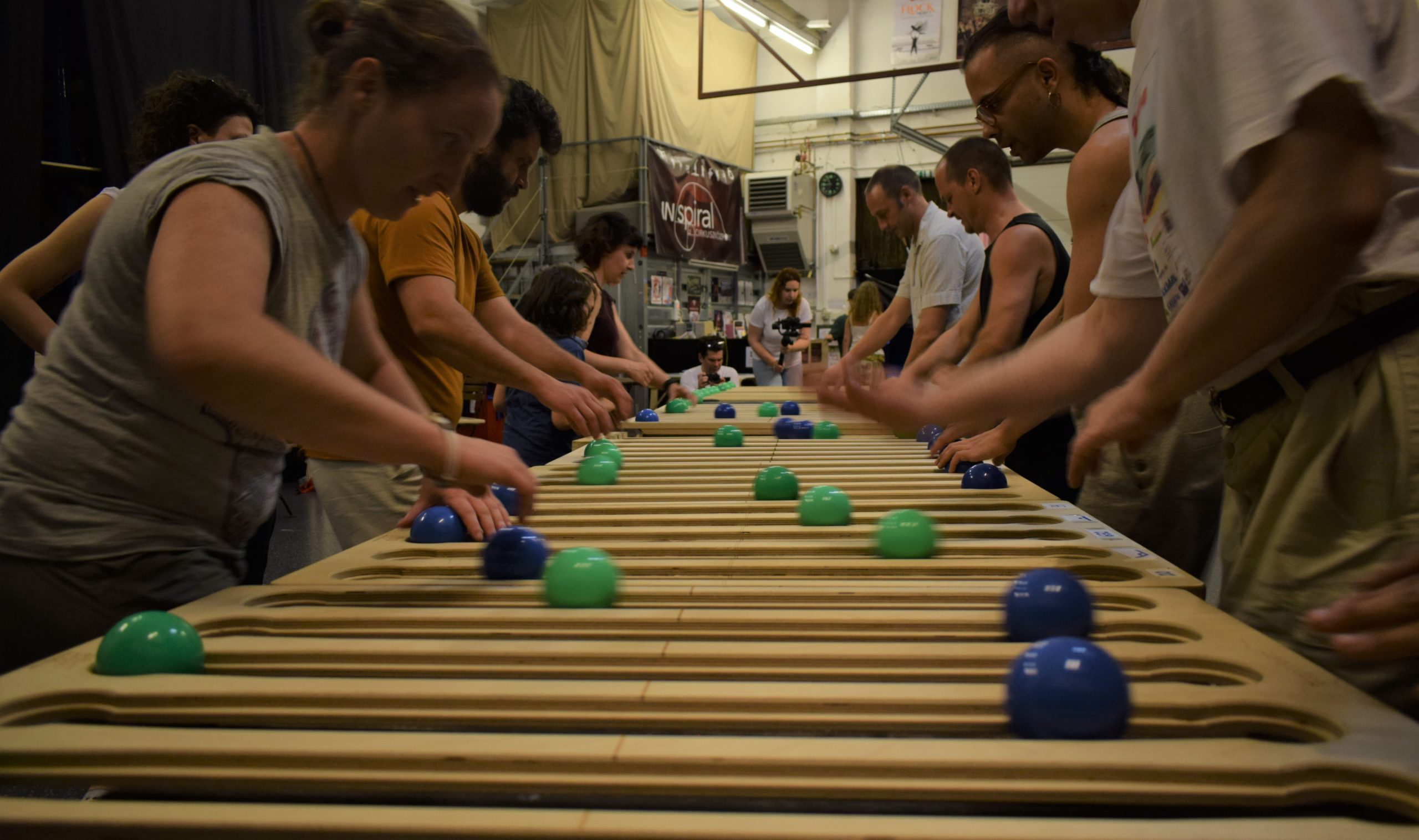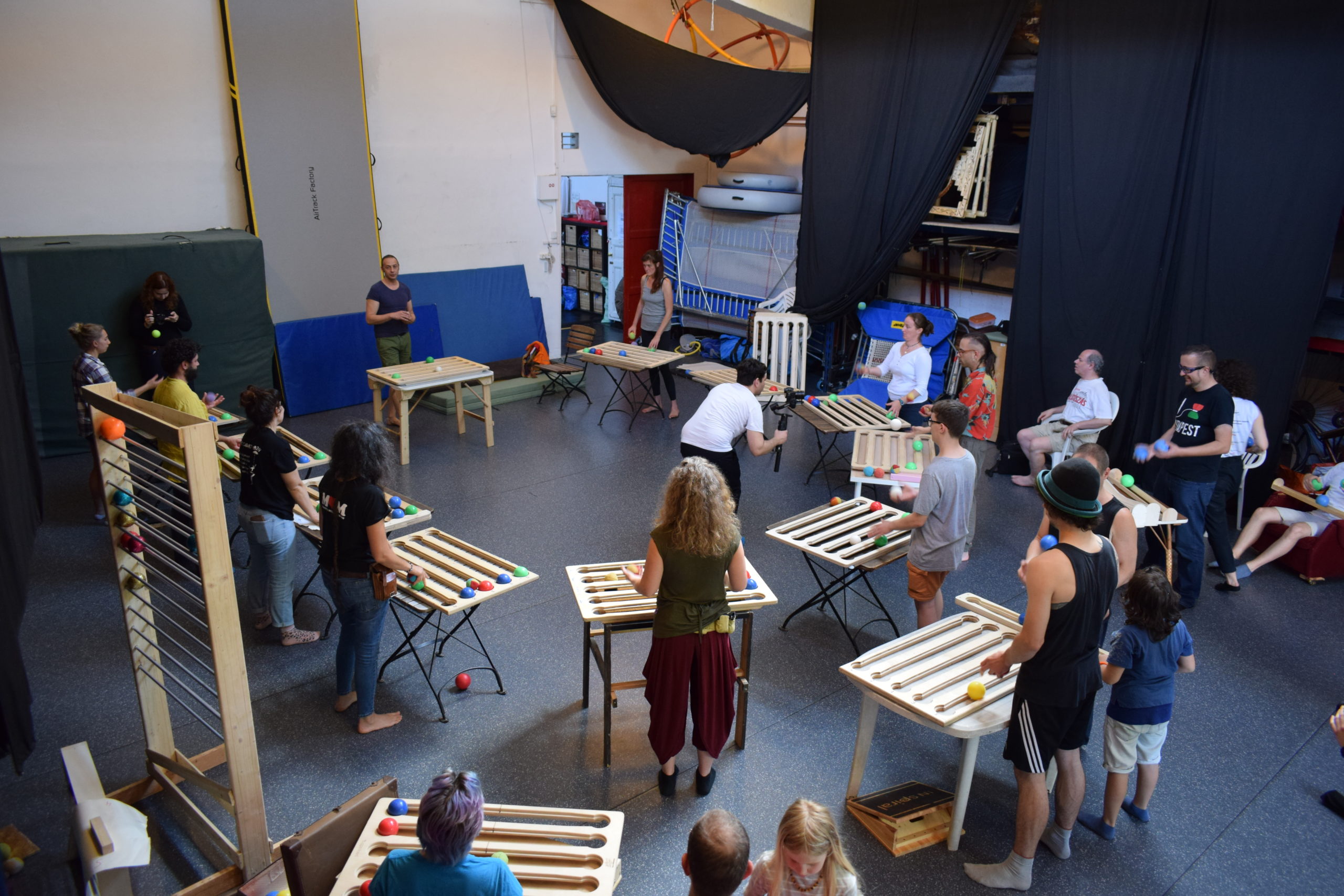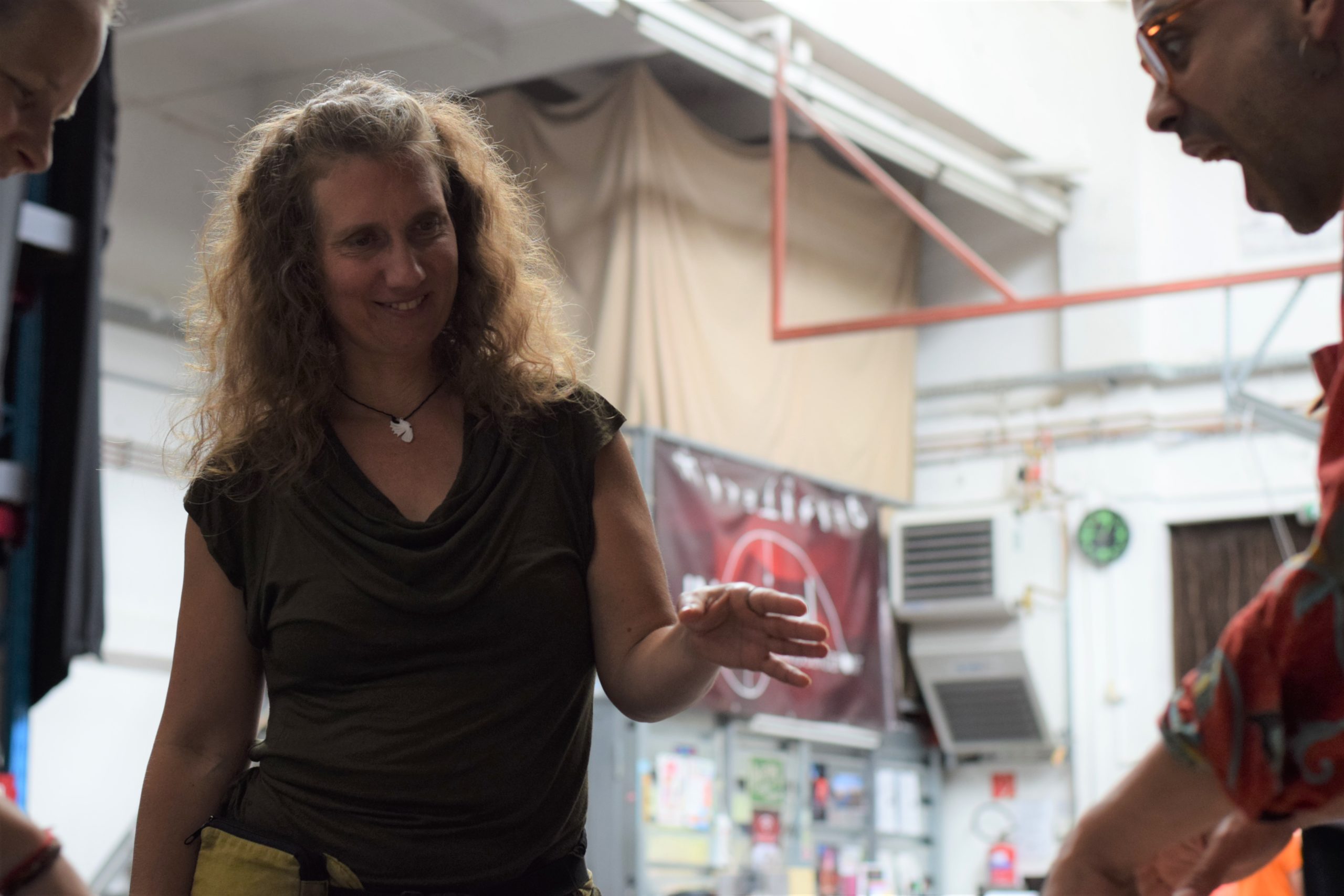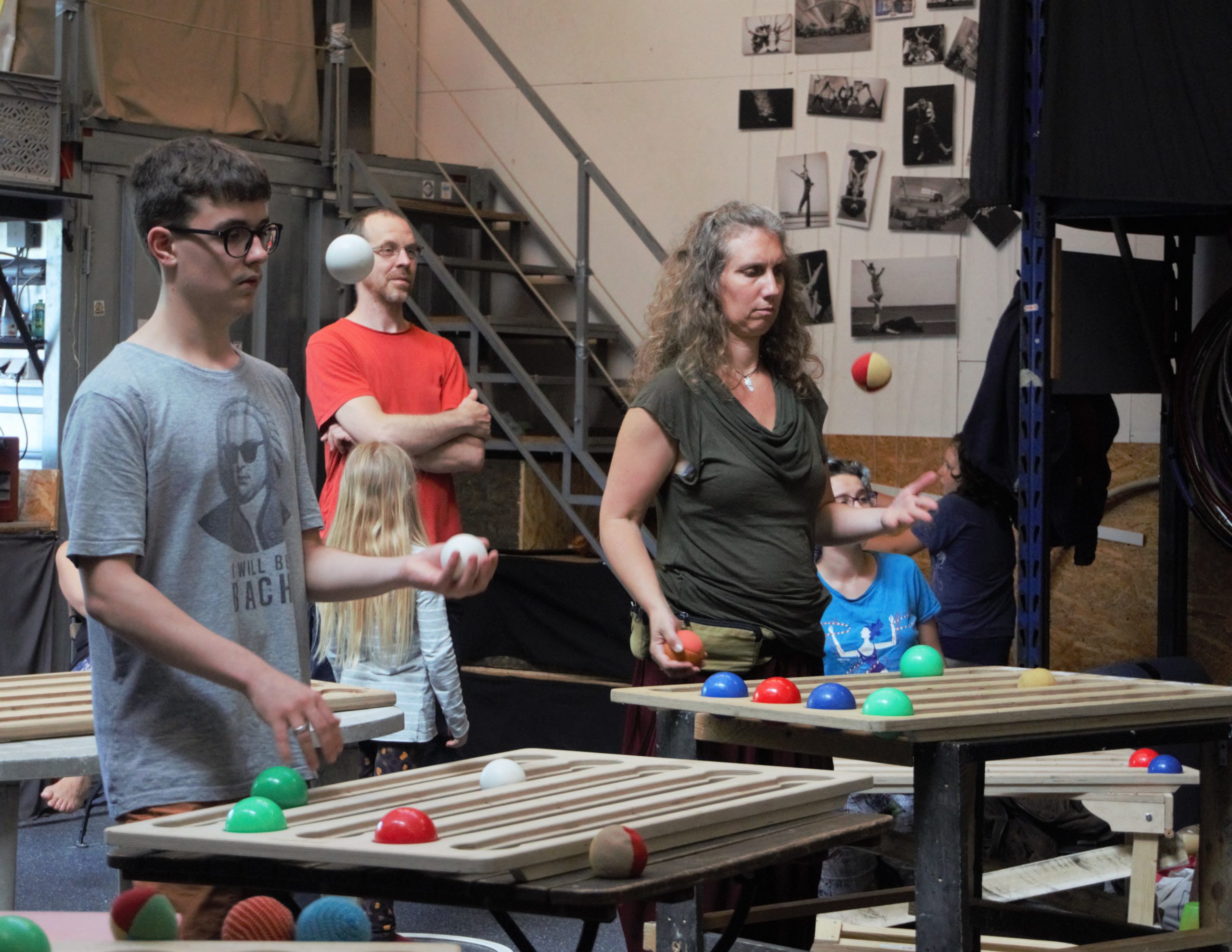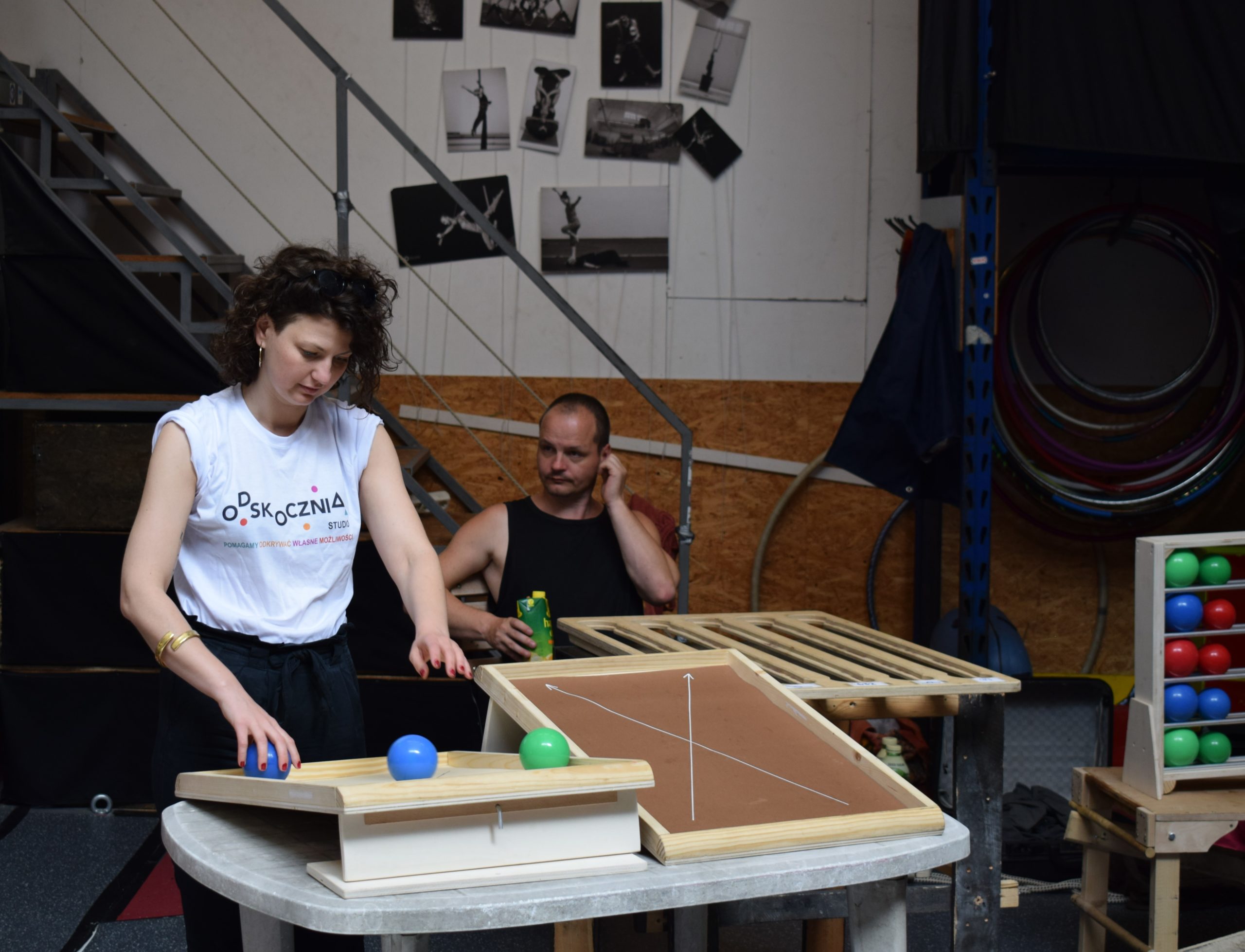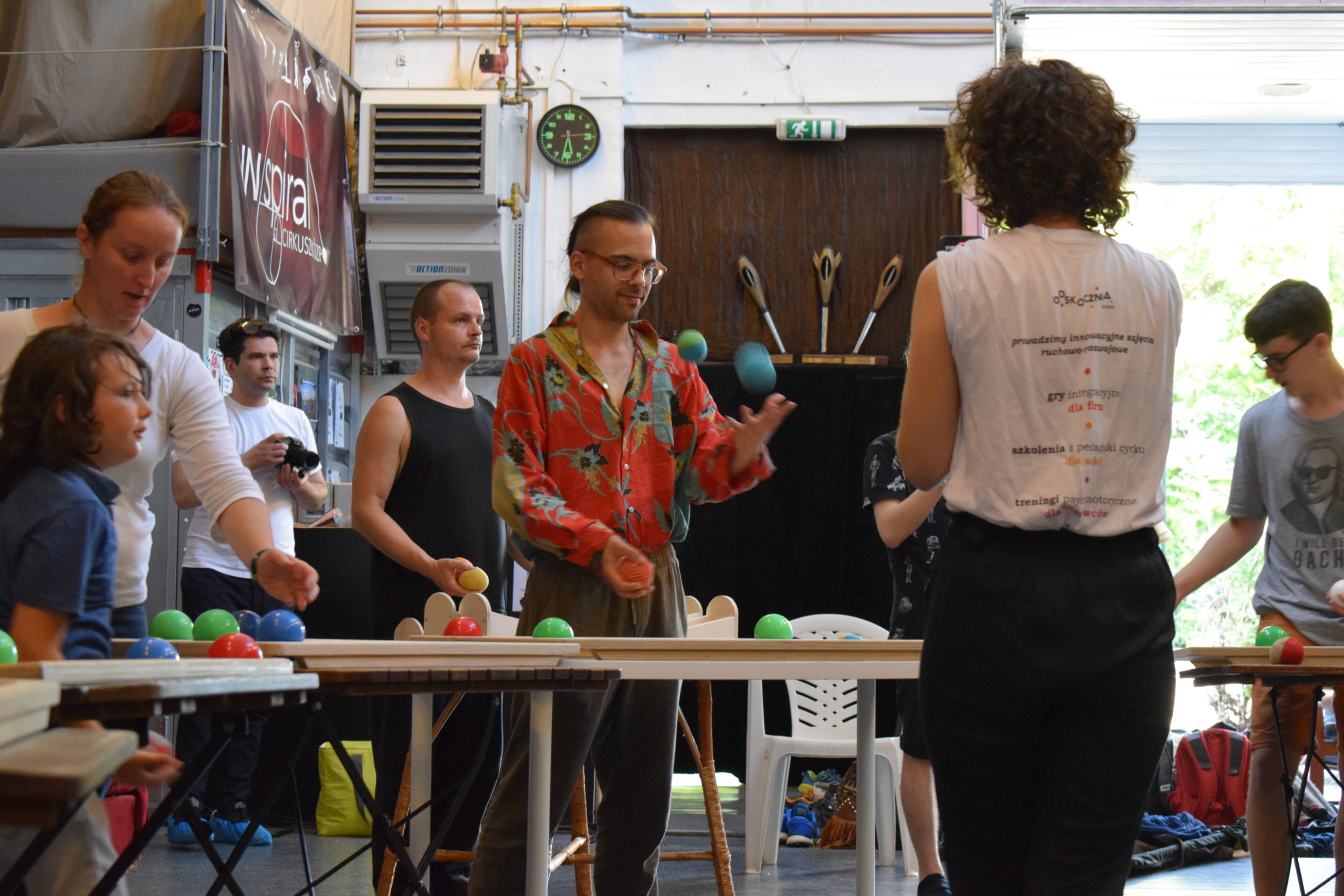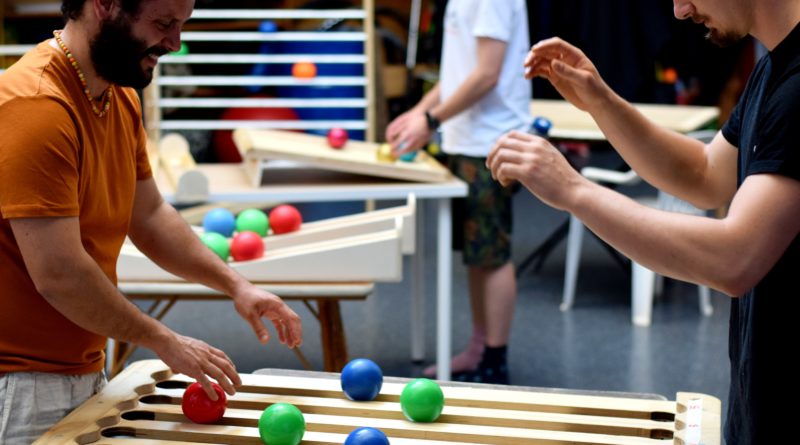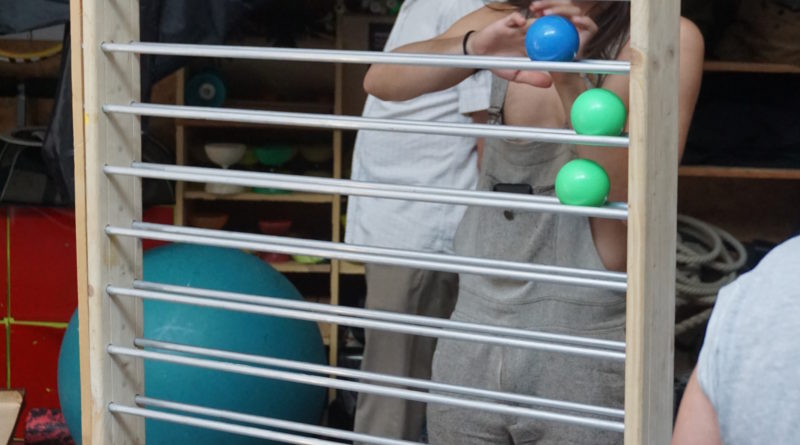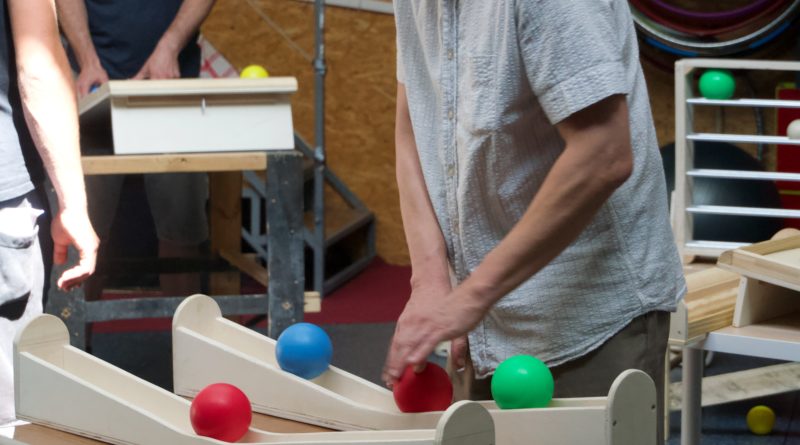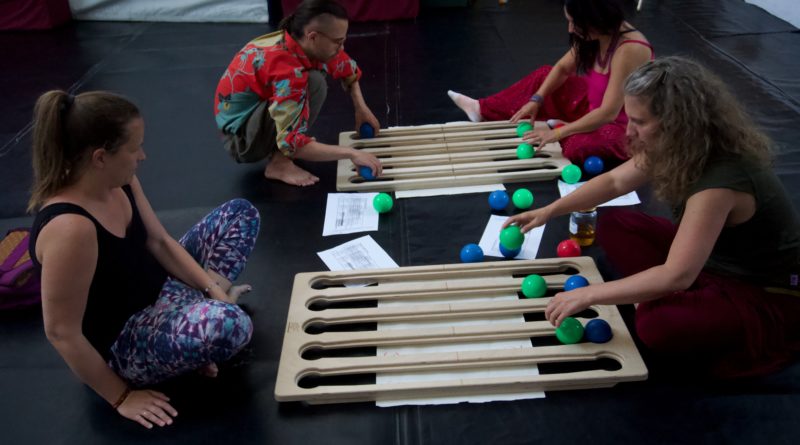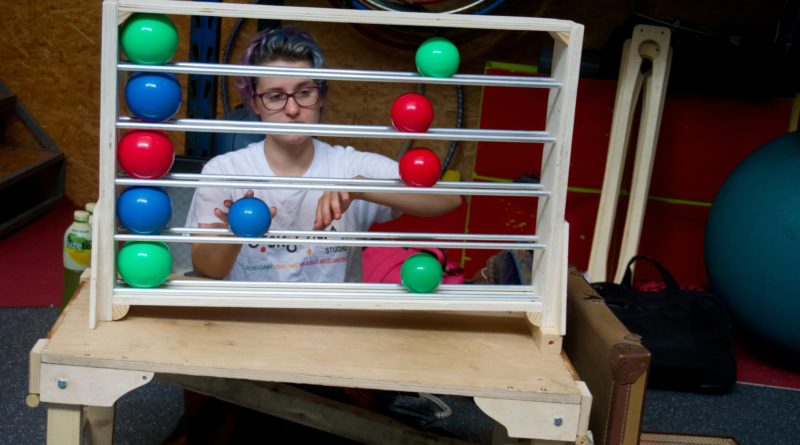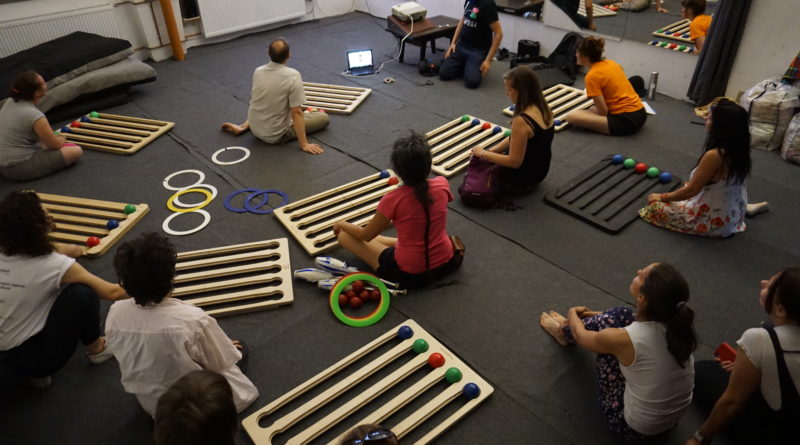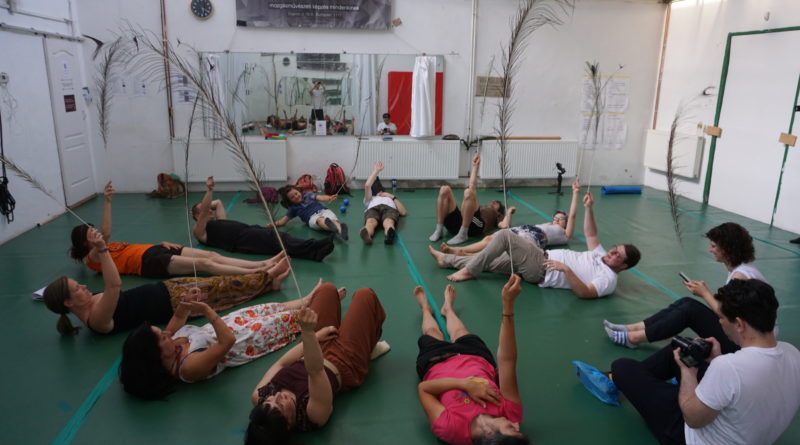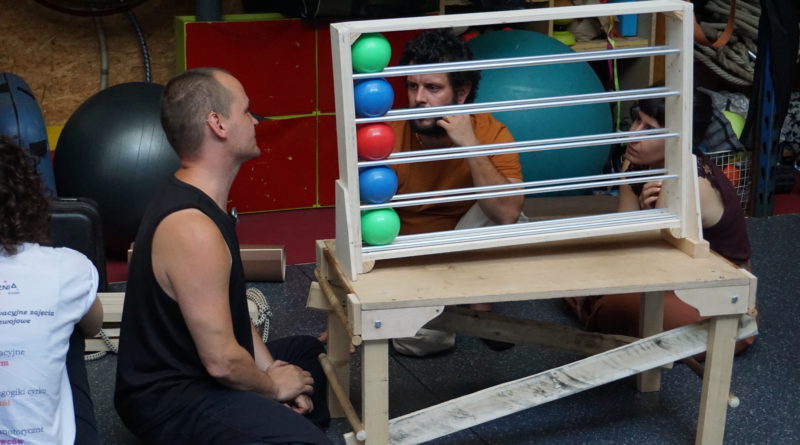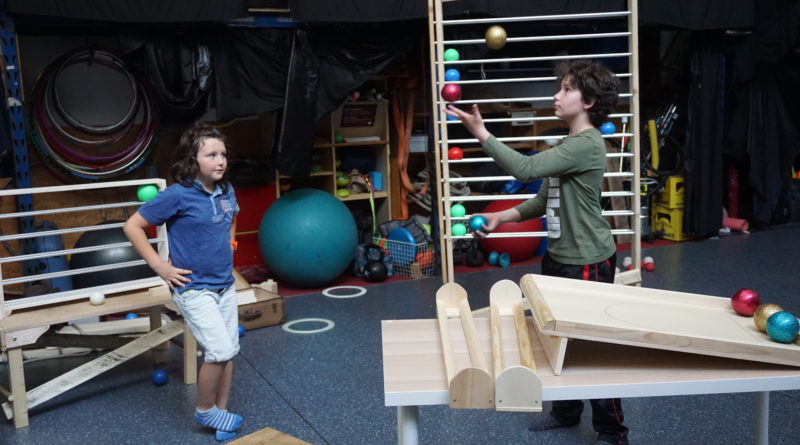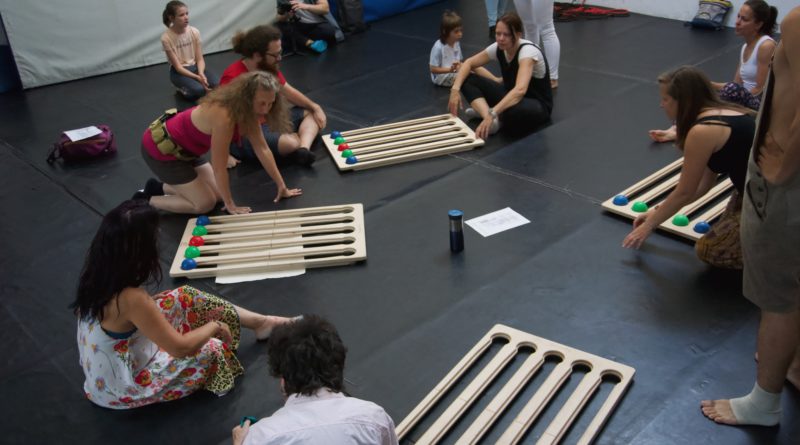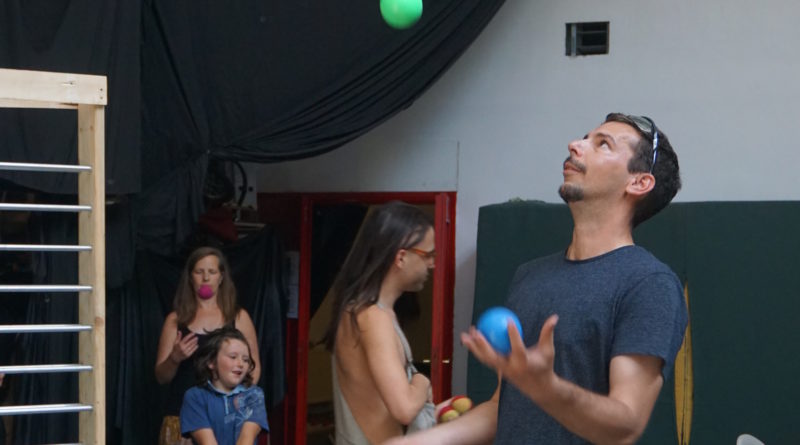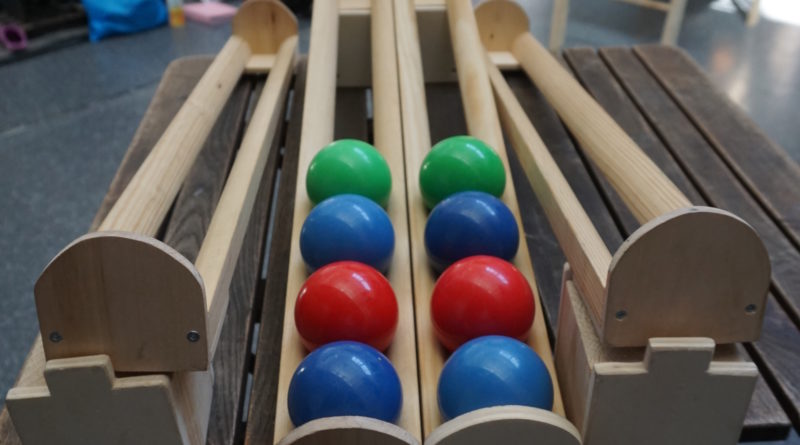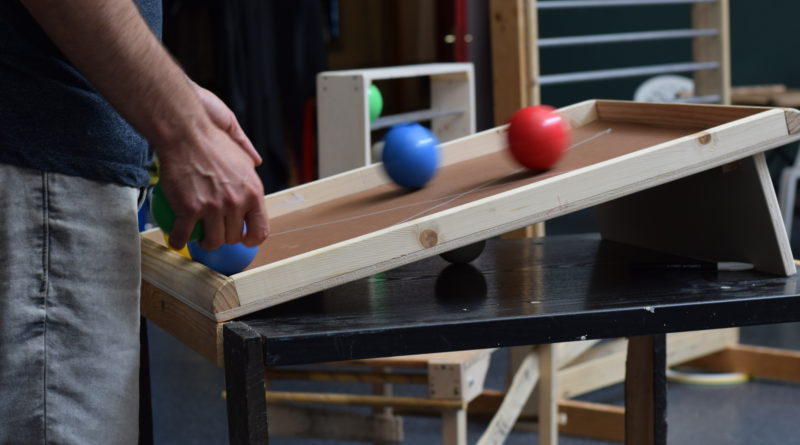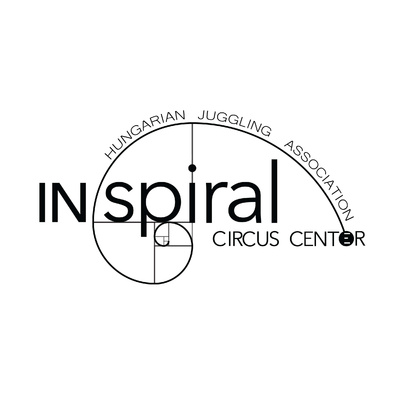Functional Juggling Holds Its First Convention in Budapest, Hungary
The burgeoning discipline of functional juggling recently hit a milestone! Practitioners and professionals from around Europe gathered in Budapest, Hungary, for an event that embraced new ways of juggling, thinking, and accessibility.
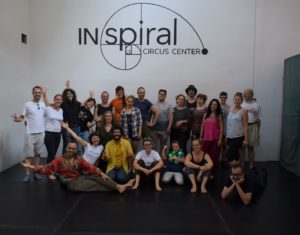
This June marked the first international gathering of functional juggling practitioners, which took place at the INspirál Circus Center, located in Budapest, Hungary. The conference brought together a mixed group of both circus and non-circus professionals from a variety of academic, clinical, and artistic backgrounds for a two-day experience of sharing and developing ideas about the accessibility of juggling in circus. The event included both traditional in-person workshops and social gathering experiences. It was also accompanied by an online portion, which included guest speakers from around the world.
Functional juggling is a relatively new discipline, which emerged into the European social circus scene around 2016, when Craig Quat spent about 18 months traveling around the continent, providing training and workshop experiences. In 2019, Craig left Europe to pursue development projects in Latin America, but not before establishing a connected network of international practitioners, who could begin to collaborate and continue to develop new juggling forms and methods based on his model of collective growth and open sharing.
This first conference, in fact, was organised as a result of one of these collaborations and included the partnership of four distinct organisations: the Odskocznia Studio in Poland, Kulturbühne Neustadt in Germany, Circo Tascabile in Italy, and the Hungarian Juggling Association. This collaborative spirit of diversity was also something noticeable in the makeup of the conference participants themselves, who were spread out over a wide variety of disciplines, professions, age groups, and genders.
One of the main reasons for organising the conference was to provide a space for new and emerging ideas about functional juggling to come together and grow. During the two days of gathering, more than 50 participants took part in a wide variety of training activities, discussion groups, and creation periods. Some examples of these events included workshops on how to structure functional juggling into early childhood development programs and some of the different ways that classical juggling and functional juggling ideas can be mixed together to complement each other. There were also informative presentations about the overall state of functional juggling in Latin America, the ways that 3D printing technologies are revolutionising how we think about designing adaptive equipment, and the impacts that Poi and Hula Hoop have on the overall conversation. A lot of networking took place at the event, and many participants left with completely transformed perspectives about how and for whom they could be making circus. By the end of the first day, everyone was feeling full of excitement, and a social trip to one of Budapest’s famous bathhouses was organised to help the group relax and continue their passionate conversations about social circus late into the evening.
The second day of the conference was just as stimulating as the first, with a lot of discussion and opportunities for future collaborations to emerge. Participants were also able to amplify their sharing experience by taking part in an Instagram takeover of the CircusTalk social media platform. Another amplifier of the event was the recording and publishing of seven digital presentations, which were made by a wide variety of speakers from the UK, New Zealand, the USA, Argentina, Chile, and Italy. These recordings represent a survey about what is going on in other parts of the functional juggling world, and can be watched for free by visiting the Hungarian Juggling Associations’ YouTube channel.
The overall experience of the conference felt like a huge success for everyone involved, and the organisers are already beginning to plan a second edition to be held in Florence, Italy, in October 2022.
The quality and opportunity to produce such events would not be possible without the help and support of the European Union’s Erasmus+ projects or the many talented and dedicated community members who continue to contribute greatly towards such projects.
For those who are already interested in functional juggling and/or would like to learn more about it, then we suggest checking out the Quat Props website, where many open educational resources can be found. Also, for anyone planning to attend the August 2022 European Juggling Convention in Madrid, there should be a significant informal gathering of functional jugglers taking place as part of the event.
Although still considered to be in its infancy, functional juggling is a field of social circus practice that has quickly gained momentum by attracting large audiences of cross-disciplinary professionals, who are all eager and excited to apply circus as a new platform for social and clinical intervention. Having the opportunity to come together as a professional group for the first time in Europe was an illuminating experience for the community, and one we hope there will be many more to come.
For those interested in visiting the circus community of Budapest, Hungary, look for #inspiralcircus. To continue to stay informed and get more involved with community developments, follow the hashtags #functionaljuggling, #malabarismofuncional, and #quatprops on any social media platform.
Click on any image to view more photos in gallery:
This article was written in collaboration between Gallyas Veronika, Lapo Botteri, and Craig Quat. Images from the Convention are courtesy of Csenge Kelecsenyi....
Do you have a story to share? Submit your news story, article or press release.


